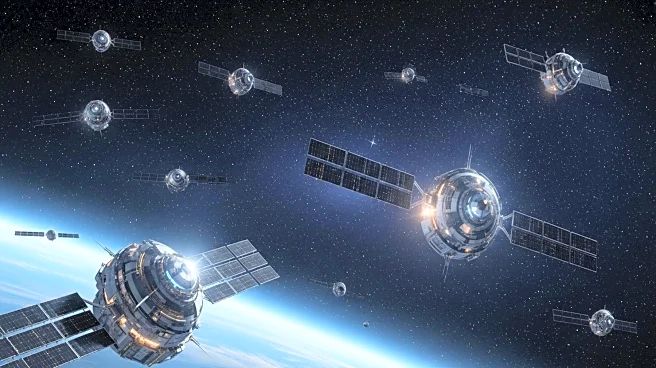What's Happening?
European civil space leaders are considering expanding the IRIS² satellite constellation, initially proposed to consist of 290 satellites. The Infrastructure for Resilience, Interconnectivity and Security by Satellite (IRIS²) aims to provide secure, low-latency communications for European military, civil, and commercial applications. Critics have labeled the program as 'too late and too small,' prompting discussions on scalability and technological enhancements. The European Space Agency (ESA) plans to support the maturation of key technologies and demonstrations to reduce technical risks, with an estimated project cost of 600 million euros.
Why It's Important?
The expansion of IRIS² is crucial for enhancing Europe's satellite communication capabilities, ensuring resilience and security in data transmission. This initiative positions Europe to compete in the global satellite industry, potentially influencing technological standards and market dynamics. The program's success could bolster European sovereignty in space communications, providing strategic advantages in military and commercial sectors. The investment in IRIS² reflects Europe's commitment to advancing its technological infrastructure and maintaining competitiveness in the space industry.
What's Next?
If European government leaders approve the expansion, the private sector may continue investing in the constellation. ESA's support for technology maturation and demonstrations will be pivotal in achieving the program's objectives. The IRIS² satellites are expected to integrate with terrestrial communications infrastructure, acting as 5G nodes and potentially upgrading to 6G standards. The program's development will be closely monitored by industry stakeholders, with potential implications for future satellite communication projects.









